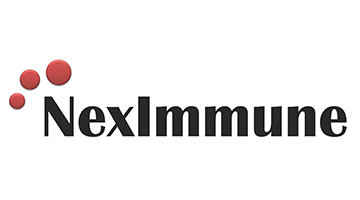NexImmune Announces Preliminary Phase 1/2 NEXI-002 Results in Patients with Multiple Myeloma
Current TAP Partner

GAITHERSBURG, Md., Dec. 12, 2021 (GLOBE NEWSWIRE) -- NexImmune, Inc. (Nasdaq: NEXI), a clinical-stage biotechnology company developing a novel approach to immunotherapy designed to orchestrate a targeted immune response by directing the function of antigen-specific T cells, today announced preliminary Phase 1/2 results from an ongoing study of NEXI-002, a patient-derived multi-antigen-specific CD8+ T cell treatment for patients with relapsed/refractory multiple myeloma who have failed ≥3 prior lines of therapy. The data on low doses of NEXI-002, presented at the 63rd American Society of Hematology (ASH) Annual Meeting and Exposition, showed a promising safety and tolerability profile and evidence of immunologic and clinical activity.
Title: Preliminary Analysis of a Phase 1/2 Study of NEXI-002 Autologous Multi-Antigen-Specific CD8+ T cells for the Treatment of Relapsed or Refractory Multiple Myeloma (RRMM)
Abstract Number: 2824
Category: Poster Presentation
Authors: Maung Myo Htut, MD, Juan C. Varela, MD, PhD, Vineetha Edavana, PhD, Emily Lu, PhD, Sojung Kim, PhD, Lauren Suarez, PhD, Mathias Oelke, PhD, Daniel Bednarik, PhD, Robert D. Knight, MD, and, Andrew Kin, MD
Date & Time: Sunday, December 12, 2021; Poster Hall Hours 6-8 pm EST
In this heavily pre-treated patient group (n=6 with an average of 7.6 lines of prior therapy), the clinical data suggests that NEXI-002 is well-tolerated without dose-limiting toxicities (no grade ≥3 CRS or any grade of ICANS). Biomarker data show that the NEXI-002 product candidate contains CD8+ antigen-specific T cells with key memory phenotypes which, after administration, are detected in peripheral blood and bone marrow of treated individuals and proliferate and persist over time. Furthermore, TCR sequencing shows that the NEXI-002 product candidate contains CD8+ T cell clones that were undetectable in the peripheral blood of the patients at baseline and which expand in both blood and bone marrow over time. After receiving lymphodepleting therapy followed by NEXI-002 infusion, patients experienced rapid lymphocyte recovery with reconstitution of both CD4+ and CD8+ T cell subtypes. Despite the infusion of very low numbers of NEXI-002 T cells (4-10x10e6 total T cells), these heavily pre-treated patients achieved stable disease for 2 to 3.5 months of duration. Importantly, despite receiving an average of 7.6 previous lines of therapy, the quality, functionality and in vivo persistence of all patient-derived NEXI-002 T cell products were comparable to those expanded from healthy donors. Strategies to yield higher product doses are underway, including evaluating patients with lower disease burden plasma cell dyscrasias.